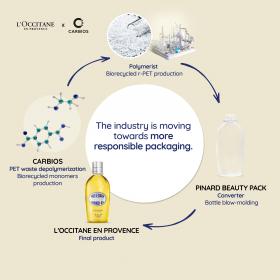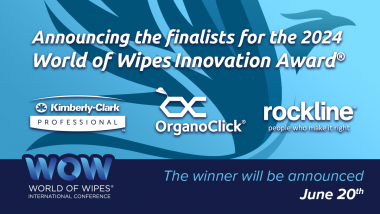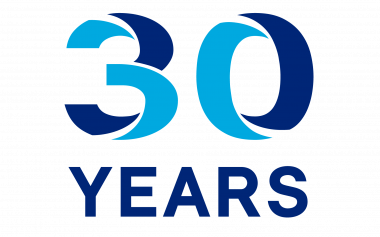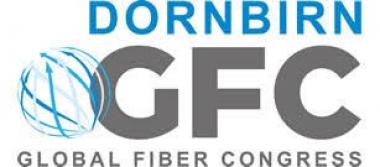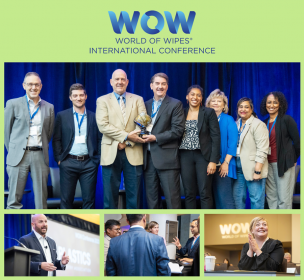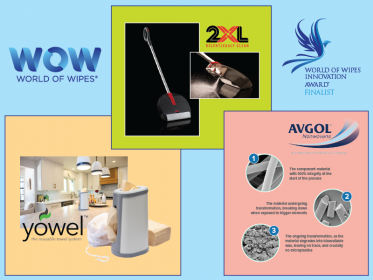L’OCCITANE & CARBIOS: PET bottle made from enzymatic recycling
- CARBIOS, L’OCCITANE en Provence and Pinard Beauty Pack join forces to establish an efficient European value chain for PET circularity
- The 100% biorecycled transparent bottle (from enzymatic recycling) will be on display at CARBIOS’ booth D02 at “Edition Spéciale” by LuxePack, held 4-5 June at the Carreau du Temple in Paris
- A key step towards achieving L'OCCITANE en Provence's eco-design commitment of 100% retail bottles made from 100% post-consumer recycled PET by 2027
CARBIOS and L’OCCITANE en Provence, an international cosmetics brand using natural and organic ingredients and long-term partner of CARBIOS, present a bottle in transparent PET made entirely from enzymatic recycling for a shower oil from the Amande range. In collaboration with converter Pinard Beauty Pack, this bottle exemplifies a shared desire to build en efficient European recycling sector to accelerate the transition to a circular economy for plastic, and meet brands' commitments for more sustainable packaging solutions. The bottle will be on display at CARBIOS’ Stand D02 at “Edition Spéciale” by LuxePack, the trade show dedicated to sustainable premium packaging, to be held on 4-5 June 2024 at the Carreau du Temple in Paris.
The 100% recycled PET bottle from CARBIOS' enzymatic depolymerization process was made with a European value chain committed to responsible consumption of sustainable materials. The bottle’s production began with the local supply of PET waste (already collected, sorted and prepared) to the CARBIOS industrial demonstrator in Clermont-Ferrand, France. The waste used consisted of colored bottles, multilayer trays and mechanical recycling residues, none of which are currently recycled using conventional technologies. CARBIOS deconstructed the PET waste into its original monomers, PTA and MEG, using its biorecycling technology. The resulting monomers were then repolymerized into new, fully recycled PET resins within Europe. In Oyonnax, France, these resins were blow-molded by Pinard Beauty Pack to create bottles according to L’OCCITANE’s specifications, and then filled with its shower oil at its Manosque plant.
Carbios


